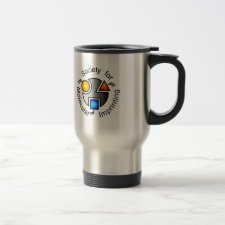
Authors: Hosoya K, Tanaka N
Publication date: 1998
Chapter title: Development of uniform-sized, molecular-imprinted stationary phases for HPLC.
Chapter number: 10
Page numbers: 143-158.
DOI: 10.1021/bk-1998-0703.ch010
Book title: Molecular and Ionic Recognition with Imprinted Polymers
Editors: Bartsch RA, Maeda M
Publisher: The American Chemical Society
City: Washington DC
Series title: ACS Symposium Series
Volume number: 703
Abstract: Non-covalently molecular-imprinted, uniform-sized, polymer-based stationary phases are prepared by a two-step swelling technique using isomers of diaminonaphthalene or chiral amides derived from (S)-a-methylbenzylamine as template molecules. Methacrylic acid is an effective host molecule for the diaminonaphthalene templates and produces a molecular recognition ability almost equivalent to that of molecular-imprinted stationary phases prepared by traditional bulk polymerization. Unexpectedly, an imprinted, crosslinked, polymer-based stationary phase without this type of strong host functionality also showed moderate molecular recognition which suggests that the crosslinked polymer network itself can memorize the shape of template in some fashion. For chiral separations of the amide derivatives, the crosslinked polymer network also memorized the shape of the chiral template to provide chiral resolution. In addition, chiral host monomers with similar functionality as the chiral amide template were found to markedly enhance the molecular recognition. Further investigation suggests that this increase in cliiral recognition is due to favorable structural interactions within specific recognition sites. Also, uniform-sized, polymer-based, HPLC stationary phases with multi-chiral selectors are prepared by a combination of molecular imprinting and in situ surface modification. Simple additivity of the chiral recognition abilities of the two types of chiral selectors is observed. Size exclusion chromatography reveals a possible causative factor for the selectivity



Join the Society for Molecular Imprinting

New items RSS feed
Sign-up for e-mail updates:
Choose between receiving an occasional newsletter or more frequent e-mail alerts.
Click here to go to the sign-up page.
Is your name elemental or peptidic? Enter your name and find out by clicking either of the buttons below!
Other products you may like:
 MIPdatabase
MIPdatabase









